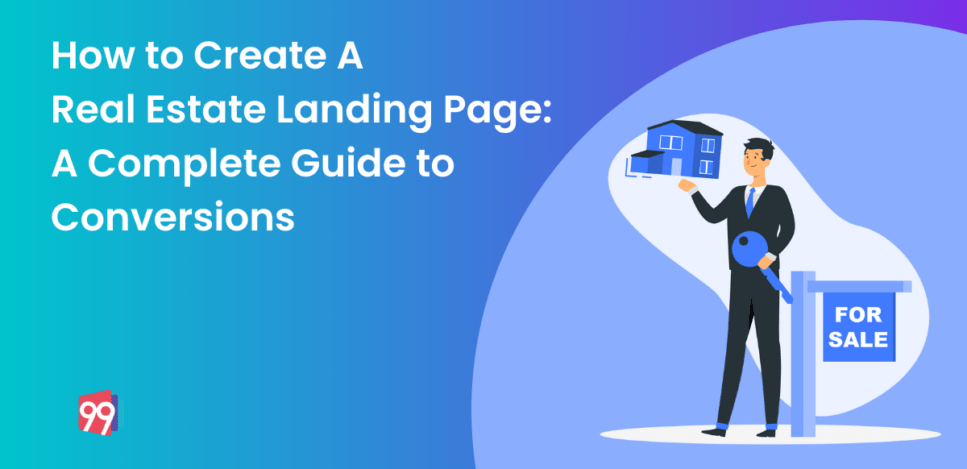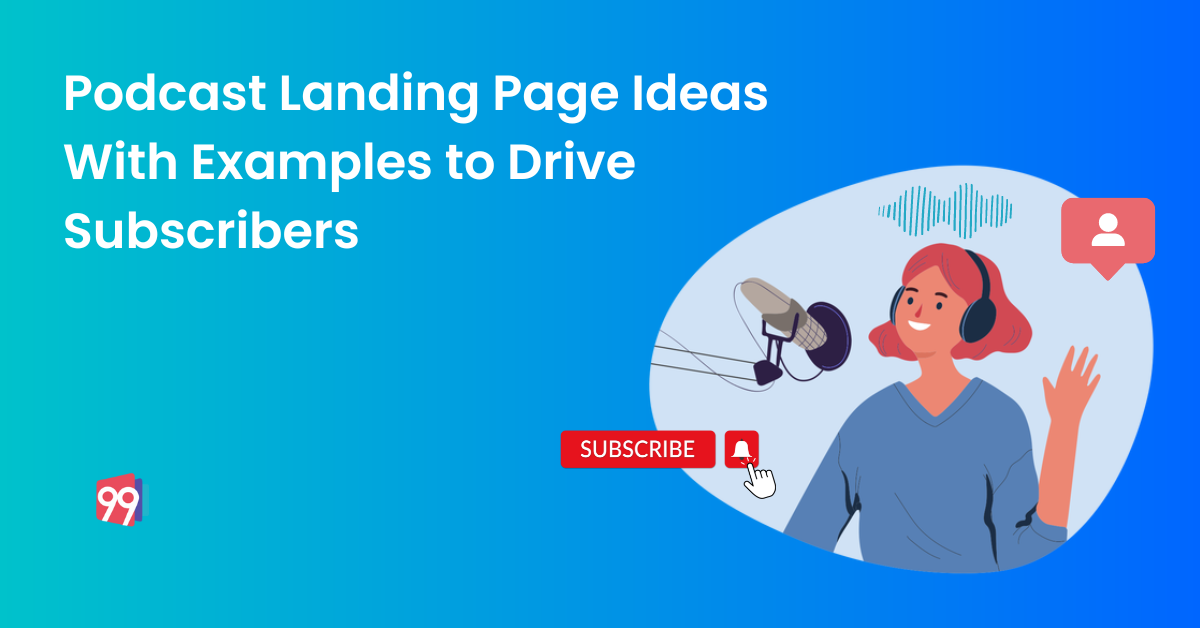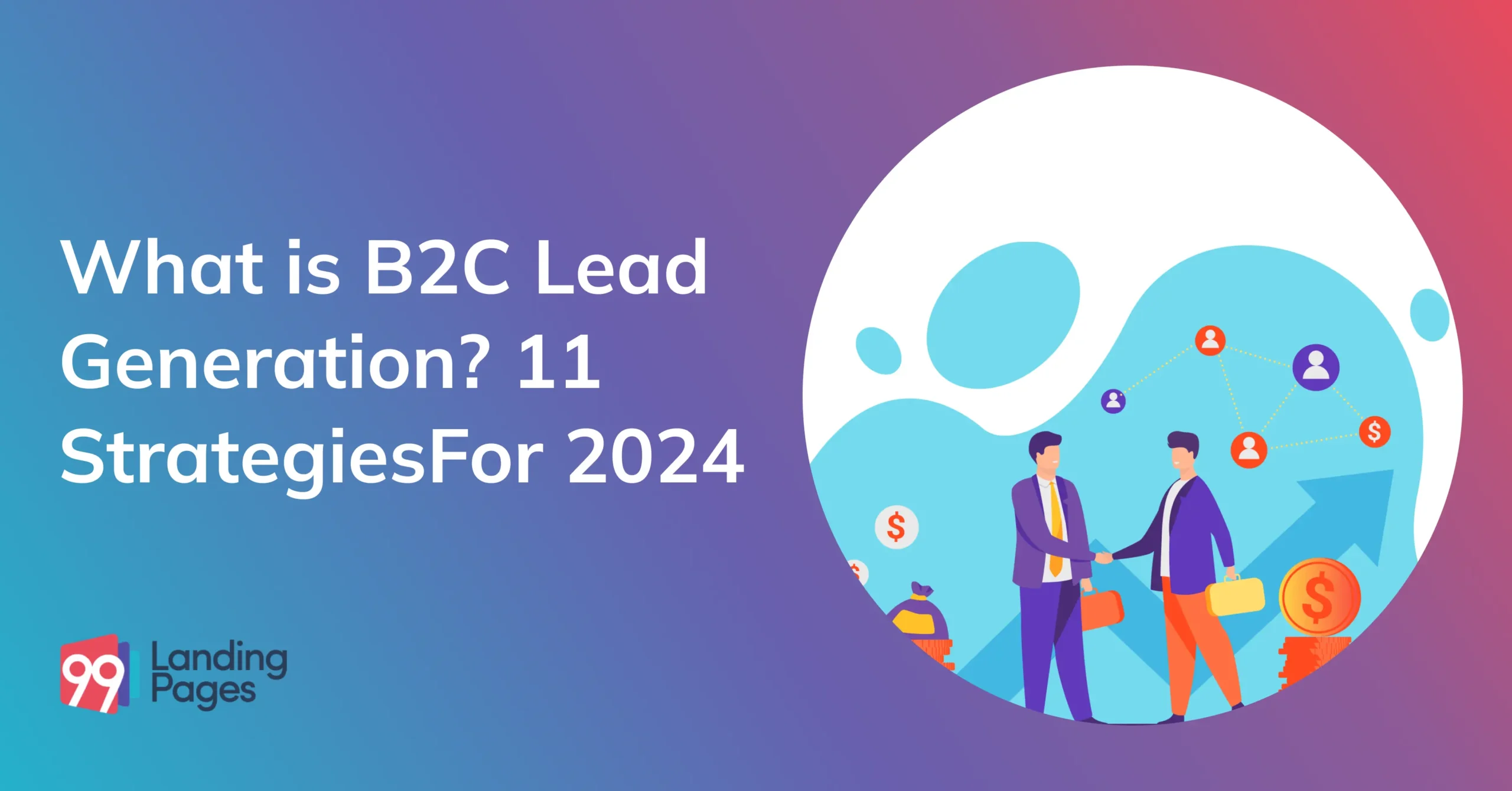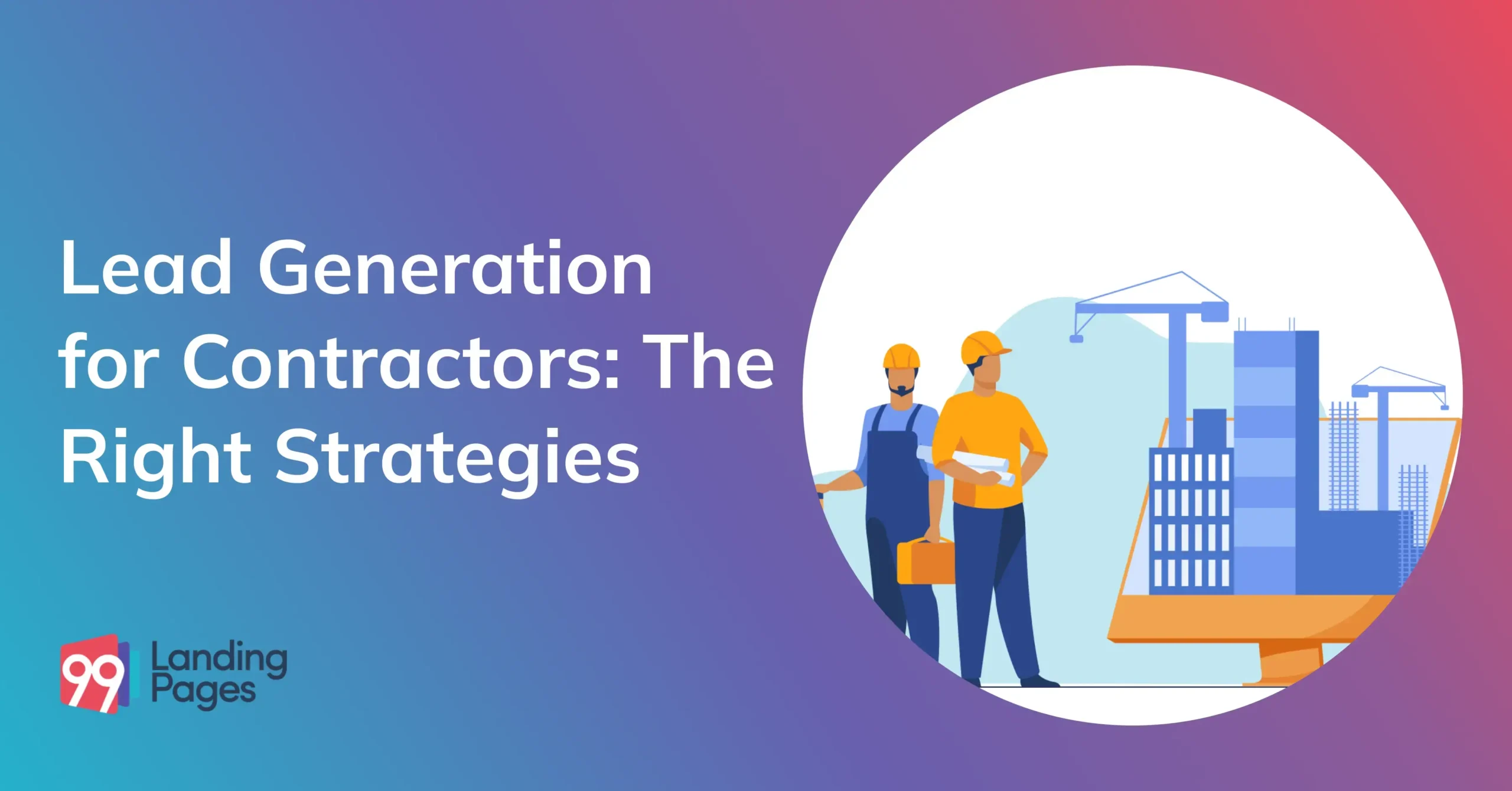A real estate landing page is all you need to boost your bookings and sell fast.
The real estate marketing sector is, without a doubt, one of the toughest industries to consistently maintain proven conversion success. Unlike, say, the fast-moving consumable goods (FMCG) industry, a real estate customer can’t exactly add a quaint £200 000 fixer-upper with character to their online cart.
Real estate is not a 30-second transaction. And this is why the property market demands a carefully considered landing page to deliver measurable results.
So, why are conversions important in real estate marketing?
A conversion in the real estate industry means getting a website visitor to provide their contact information and permit you to contact them at their convenience.
This signals a user’s interest in the kind of property advertised and indicates a specific price-point preference. Collecting such sensitive data is not only difficult without a landing page, but it is often also intrusive and may lead to reputational harm.
What is a Real Estate Landing Page?
A landing page is a standalone page on a website that is built around a specific conversion goal. There are three common types of real estate landing pages:
1. Home Search Landing Pages
Also known as product landing pages, these pages directly introduce the product to the visitor. This way, visitors understand the offering and are also provided with enough information to consider making a purchase. They aim to attract buyers, investors, and householders.
Users will be prompted to directly contact the estate agent or leave their personal information. The tool is ideal for conversions and revenue generation.
2. Home Valuation Landing Page
These pages are designed to attract potential sellers. The lead is prompted to fill in their personal details, and they will get a copy of their valuation report via email shortly thereafter. These pages are ideal for getting more seller leads for real estate agents.
Success in the property sector is defined by access to qualified leads. Therefore, much time and resources are spent on networking, building relationships that extend leads to you. Using landing pages that direct visitors to provide their personal details and related preferences is an ideal strategy.
3. Free Content Landing Pages
Suitable for both buyers and sellers, these landing pages extract data that enables you to better create a detailed profile of your audience.
Who Needs a Real Estate Landing Page?
Every business that sells property-related or connected products needs a well-thought-through landing page. This tool is not exclusively useful to marketers, either. Some of the real estate professions in which landing pages can be leveraged include:
- Estate agent
- Estate rental agents
- Holiday rental agents and companies
- Brokerage companies
- Property developers
Landing pages can also be set up by professionals working in property-related fields such as property insurance consultants and conveyancers. Keen consumers with a good grasp of the real estate market can also set up a landing page to sell their own property.
Suggested Read: Real Estate Lead Generation Ideas That Work
Why Do You Need a Real Estate Landing Page?
Without a conversion-specific landing page, you are missing out on some very important benefits which can help you do the following:
– Take advantage of targeted traffic
Funnelling your advertising endeavours from email and social media campaigns to a specific and specially designed standalone web page is more impactful than visitors landing on a home page or a product page with many different properties. A consistent focus on a singular idea, product, and approach increases your chances of closing the deal.
– Grow your lead database
A lead generation form along with a unique offer will enable you to gather more contact information. With this, you can follow up and nurture leads into clients. You can also add additional fields in your form to better qualify the leads you receive. This can include geographical areas of interest, and whether the user is an investor or a home buyer. Such information is vital in order for your website and landing pages to present the kind of real estate that is aligned to each user’s needs.
– Showcase property more effectively
A landing page will highlight important elements of new property developments, rental units, or your real estate services to a specific audience. Landing pages are exceptionally targeted, with a single call-to-action. This means you focus on a single product or idea that most appeals to a targeted group of visitors.
– Prompt immediate action
Real estate landing page CTAs often create a sense of urgency through action-orientated words such as “Now!” or “Limited units available.” This is a clever way of pre-screening the kind of client interactions you want. You are not looking for someone keen to buy property within the next year or two, but want to interact with visitors looking to purchase real estate immediately. This saves time while ensuring you present the right product to the intended customer.
– Measure campaign results
No matter how much money you put into general listing adverts within listing websites, you will have no indication of listing performance. A dedicated landing page gives you access to real-time data through Google Analytics or other data platforms. You will see where most of your traffic is coming from and focus on linking your landing page to those channels.
How to Create a Real Estate Landing Page
While every landing page serves a unique purpose, there are specific elements all landing pages have in common, regardless of their conversion goal. When creating a real estate landing page of your own, keep the following tips in mind.
1. Choose one call-to-action
A CTA tells the visitor what to do once they have digested your intended message. A landing page must always have a CTA, and it should be aligned to your conversion goals. It is advisable to consider what your campaign objectives are.
If you want to attract property purchasers that fall within a specific purchase price bracket, then your CTA might prompt visitors to answer a few questions regarding the down payment they are willing to put on an offer. Another alternative is to request visitors to select a time slot from your calendar and submit contact details. This will enable you to better nurture relationships with potential buyers through scheduled appointments.
2. Create a compelling headline
“On average, five times as many people read the headline as they read the body copy.” This statement by David Ogilvy, an advertising industry icon, is correct. First impressions are everything, even on a landing page. The headline is the first thing a visitor sees when they arrive at your landing page. If the headline is compelling, they stay. If it is not, then they simply bounce.
Another tactic is to create a powerful headline that doubles as a CTA. This immediately creates a sense of urgency. The visitor still has the option to scroll down for further information, and can just as easily convert into a lead through another CTA at the bottom of the landing page.
3. Include high-impact visuals
The real estate industry is defined by good visuals. They sell the “dream home,” “perfect office,” or even “ideal investment” narrative. Invest in multi-audio-visual mechanisms to showcase property, such as high-resolution images, panoramic videos, virtual tours, and 3D floor plans. The quality and standard of such tools suggest a face-value estimation of costs and support your credibility.
4. Include high-impact visuals
The real estate industry is defined by good visuals. They sell the “dream home,” “perfect office,” or even “ideal investment” narrative. Invest in multi-audio-visual mechanisms to showcase property, such as high-resolution images, panoramic videos, virtual tours, and 3D floor plans. The quality and standard of such tools suggest a face-value estimation of costs and support your credibility.
5. Use transparent language
It is important to manage expectations – do not oversell. Yes, you must get potential clients excited by mentioning all the property’s positive features. However, it is important to be direct and forthcoming about costs, location, and spatial measurements.
6. Leverage social proof
Credibility and trust are everything in this industry. And there is no better proof of your credibility than your interactions with previous clients. Do not be shy to feature reviews or testimonials on your landing page. Regardless of your exceptional reputation, it is likely that new leads do not know you. (If they did, they would already be working with you!)
7. Add a sticky header
Persistent headers, also known as sticky headers, keep the header of a website or app in the same place as the visitor scrolls down the page. Sticky headers dramatically improve user experience, as users have quick access to navigation and search tools. As a result, visitors engage more with the content, which helps increase conversions.
Example of a Real Estate Landing Page
Sundae
Sundae is a platform designed to help sellers get the best price for their homes through a private sale. Here, Sundae plays the role of a supportive resource for sellers finding it hard to move real estate. The benefits – “sell as-is, pay,” “pay zero fees,” and “move on your timeline” – are repeated throughout the landing page. A seller immediately knows what to do the moment they land on the page with the clear prompt stating: “Sell your house fast for the best price.”
Testimonials with names, photos, and locations provide credibility and trust, so leads know they are getting a genuine selling partner.
Leads are also instantly screened, as Sundae requests the address of the home intended for sale before asking for further information. This ensures that Sundae only spends time following up with qualified leads that have proven they have a property to sell.
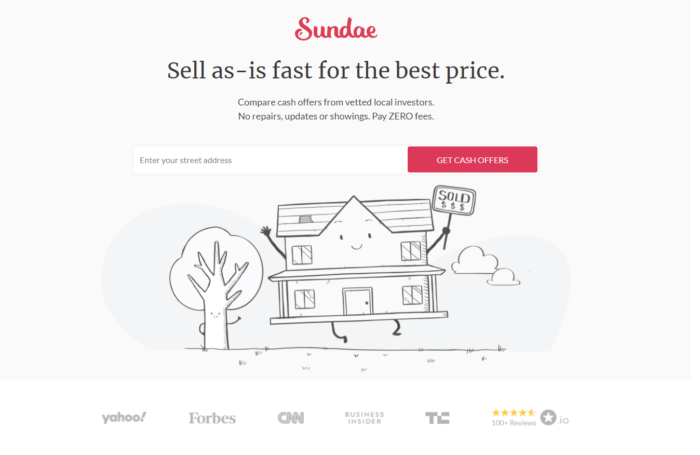
Conclusion
A real estate landing page will help attract quality leads and reach out to the right traffic. The right elements like single CTA, compelling headline, great visuals, etc., will create a better user experience and generate a positive response to your marketing campaign.
If you want to learn more about landing pages then check out these articles:
Learn About Landing Page Optimisation Best Practices
5 Essentials of an Effective Lead Generation Landing Page
Our Featured Templates:
Unbounce Digital Marketing Landing Page Template


